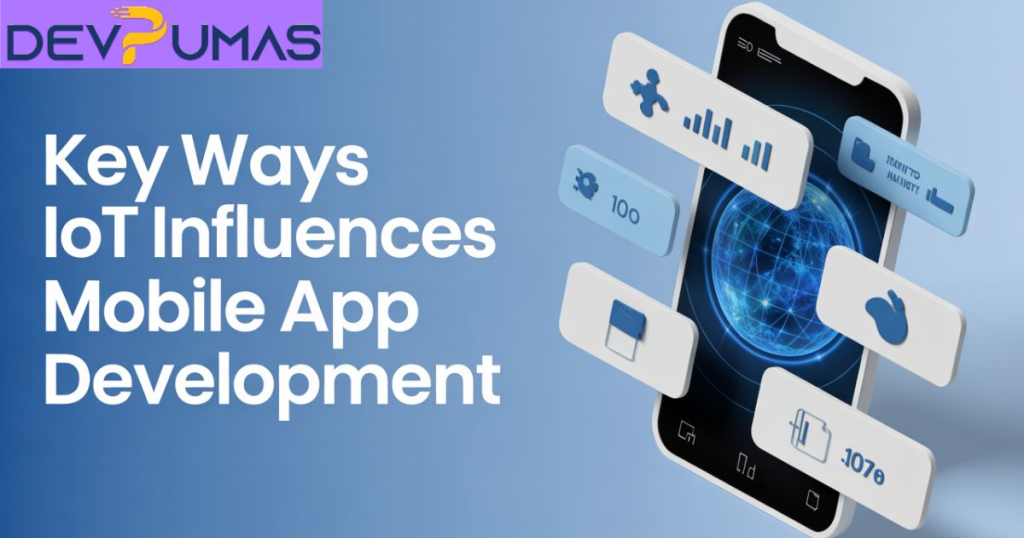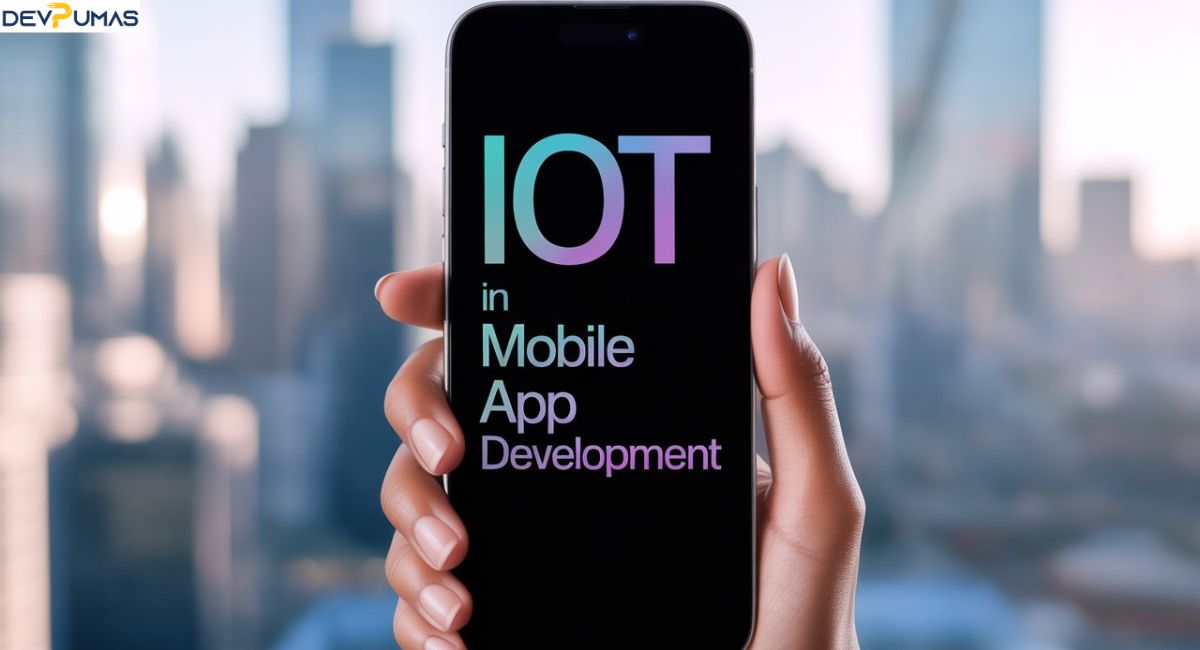The rise of IoT in Mobile App Development is reshaping how businesses in the UK connect with their customers. By linking smart devices integration with everyday applications, companies can deliver seamless control, automation, and personalized mobile experiences. From fitness tracking apps to healthcare IoT solutions and smart homes and appliances, the demand for connected apps is growing at record speed. With IoT-enabled mobile apps, users gain access to real-time data analysis, IoT-based automation, and improved security in IoT apps. Businesses adopting these innovations are not only enhancing customer engagement but also driving smarter decisions with IoT data collection and processing across industries.
What is IoT in Mobile App Development?
At its core, IoT mobile app development combines digital software with physical devices. These apps serve as a bridge between hardware sensors, cloud systems, and users. Think of smart homes and appliances where you adjust lighting or heating through your phone. Or fitness tracking apps that monitor health using IoT-powered fitness solutions.
Unlike ordinary apps, IoT-enabled mobile apps deal with massive IoT data collection and processing. Developers must ensure strong encryption and authentication and adopt APIs and IoT protocols that support millions of connections. This is why security in IoT apps is central to protecting both personal and industrial data.
How IoT Powers Mobile Apps in 2025
The year 2025 is expected to mark a turning point in the rise of AI-driven IoT applications. With the UK’s rollout of 5G-powered IoT apps, connections will be faster and more reliable, supporting large-scale industrial IoT adoption. This means apps will control everything from transportation and logistics IoT systems to smart farming technologies in agriculture.
A growing reliance on voice-enabled IoT apps is also evident. Devices now support NFC and RFID connectivity, making it easier to pay, unlock, or track goods through mobile apps. With IoT-based automation, users enjoy seamless experiences that respond instantly to their needs.

Key Ways IoT Influences Mobile App Development
One of the biggest changes is data-driven decision making. Mobile apps don’t just connect devices—they learn from real-time data analysis to create user experience personalization. For example, retail IoT personalization helps shops suggest products based on past purchases, while healthcare IoT solutions track symptoms and predict issues.
Developers also face the challenge of hybrid app development and cross-platform IoT apps. People use different devices daily, so apps must work smoothly across platforms. At the same time, encryption and authentication remain crucial to tackle risks in IoT mobile app development.
Top Industries Driving IoT in Mobile App Development
In healthcare, IoT in healthcare (IoMT) apps allow remote patient monitoring and real-time tracking of medical conditions. The UK’s NHS has already begun adopting healthcare IoT solutions that integrate with wearable sensors and hospital systems.
Agriculture has also embraced smart farming technologies. Farmers use agriculture IoT applications for soil monitoring, weather tracking, and IoT-based automation in irrigation. Similarly, automotive IoT integration with telematics and navigation systems has revolutionised the transport sector, making driving safer and routes smarter.
Best Real-World Examples of IoT Mobile Applications
The best-known IoT apps are already part of everyday life. Samsung SmartThings manages smart homes and appliances, while Fitbit continues to lead the IoT-powered fitness solutions space. Tesla’s mobile app is a classic case of automotive IoT integration, offering features like smart climate control and telematics.
In the UK, Hive Active Heating is one of the most popular consumer IoT market products, letting users adjust heating systems from anywhere. These examples prove how IoT mobile app development improves lifestyles through IoT-based automation and user experience personalization.
Emerging Trends in IoT-Driven Mobile App Development
Several IoT future trends are shaping mobile apps today. Edge computing in IoT ensures data is processed near devices, reducing delays and supporting faster decision-making. This trend benefits transportation and logistics IoT where quick response is vital.
Another strong wave comes from AI-driven IoT applications. Machine learning enables real-time data analysis, helping industries predict failures, optimise supply chains, and boost productivity. In retail, IoT data collection and processing powers retail IoT personalization that improves sales and customer trust.

The Future of IoT in Mobile App Development
The UK is already on the path to becoming a leader in industrial IoT adoption. The next few years will see rapid growth in cloud computing in IoT and cross-platform IoT apps, offering businesses greater scalability and cost-effectiveness.
By 2030, experts expect billions of devices to connect through secure mobile connectivity. This massive IoT market growth will expand opportunities in healthcare, transport, farming, and retail. Companies that embrace IoT mobile app development early will gain a competitive edge through better customer loyalty and stronger data insights.
Ready to Launch Your IoT-Powered Mobile App?
If your business is planning digital transformation, now is the time to explore IoT in mobile app development. At DevPumas, we specialise in building IoT-enabled mobile apps, cross-platform IoT apps, and hybrid app development solutions tailored for UK businesses. Our services cover everything from secure mobile connectivity and APIs and IoT protocols to seamless user experience personalization.
Whether it’s IoT in healthcare (IoMT), transportation and logistics IoT, or smart farming technologies, our expert team develops mobile apps that bring automation, speed, and security to your operations. By choosing our custom IoT app development services, you gain future-ready solutions that help you compete in today’s connected ecosystem.
FAQs
Q1: What is IoT in Mobile App Development?
IoT in mobile app development connects smart devices with apps to enable real-time data analysis and seamless user experience personalization.
Q2: How does IoT improve mobile apps?
It boosts apps with IoT data collection and processing, offering better secure mobile connectivity and personalized mobile experiences.
Q3: Which industries benefit most from IoT in mobile apps?
Healthcare, retail, automotive, fitness, and agriculture lead the way with IoT-powered fitness solutions, smart farming technologies, and IoT in healthcare (IoMT).
Q4: Is IoT in mobile apps secure?
Yes, developers use encryption and authentication with APIs and IoT protocols to ensure security in IoT apps.
Q5: What are the future trends of IoT in mobile app development?
Expect growth in 5G-powered IoT apps, voice-enabled IoT apps, edge computing in IoT, and cross-platform IoT apps.
Conclusion
IoT in mobile app development has already changed how industries work, and its impact will only grow. From IoT-powered fitness solutions and healthcare IoT solutions to agriculture IoT applications and automotive IoT integration, apps are now at the heart of the IoT revolution.
The coming years will bring even more innovation with IoT future trends like edge computing in IoT, voice-enabled IoT apps, and AI-driven IoT applications. Businesses that embrace these changes today will shape the connected world of tomorrow.


